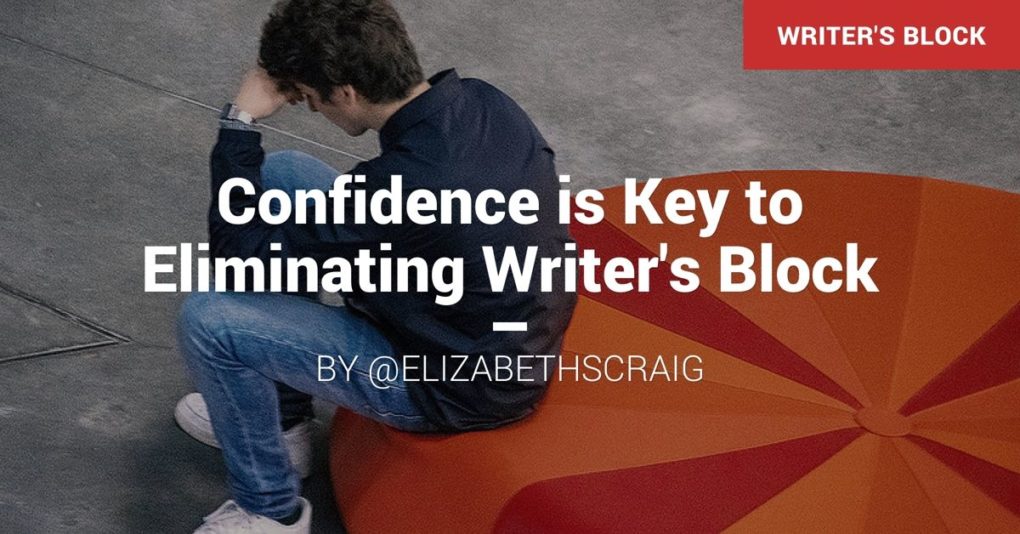by Elizabeth S. Craig, @Elizabethscraig
When I hit rough patches (and I do nearly every book), I keep going without feeling blocked. That’s because I’ve done it before. Every couple of books I seem to hit a major issue. It becomes less of an issue because I realize I can power through it. Whether I fix the issue then or fix it in the draft, I know it will be fixed. I know that the story will end up turning out fine.
This is true in other arts, as well. I saw an interesting video that Open Culture posted online. It depicts legendary B.B. King, with the confidence of a lifetime of performing, changing out a broken guitar string in the middle of a performance at the Live Aid concert in the mid-eighties. Without missing a beat, he fixed his broken string in front of a crowd of 80,000 people.
At the same time I was watching the video, I was in the middle of reading actor Bryan Cranston’s autobiography, A Life in Parts. He echoed what I’d noticed with the B.B. King performance (p. 133) about the importance of confidence as a professional artist:
“This whole business is a confidence game. If you believe it, they’ll believe it. If you don’t believe it, neither will they. Today, when I’m in the position as a director to hire actors, I don’t feel entirely comfortable hiring someone who doesn’t emit confidence. If an actor comes in, and I feel flop sweat and need from them, there is almost no chance I will hire them. Not because they are untalented, but because they haven’t yet come to the place where they trust themselves, so how can I trust they’ll be able to do the job with a sense of ease? Confidence is king.”
What if you don’t have confidence through experience? What if you’re not yet at the point, as Cranston says, that you trust yourself?
The obvious answer is to continue writing. But I think that other things can help, too.
Keep reading and see how other writers succeed and fail (especially in your genre).
Note your successes each day to make your progress easier to track.
Finish what you start writing. This helps build confidence that you can at least finish a book, even if it requires major revision.
Have you developed confidence in your writing ability?
Self-confidence is key to beating writer's block: Click To TweetPhoto credit: Tomek Nacho via Visual Hunt / CC BY-ND

That’s exactly it. With public speaking, the confidence comes from knowing your material, knowing your audience, and practicing. That gives you the confidence to do it well. And if you do mess up, you can just keep powering through it.
Diane–Good point on applying this concept to public speaking! I’ve discovered much the same thing.
I think you’re absolutely right, Elizabeth, about the need for confidence. You need that confidence to keep writing through rejections, mistakes, and so on. I think it’s also important to remember that nobody’s perfect. Even the best-known and most successful authors make mistakes and have issues. It helps to remember that on THOSE DAYS.
And we all have them! Thanks for coming by, Margot.
I do think you’re right, but self-confidence, I believe, comes from more than knowing your material and practicing. This isn’t a huge issue for me with my writing, but it is with my singing. I’m actually beginning a memoir about it. For some of us, self-confidence is a much harder characteristic to develop than others, depending on the way we were raised and the messages we received. Great topic, Elizabeth
Karen–Interesting topic for a memoir! And you bring up an aspect that didn’t occur to me (because I was lucky in having a supportive background). I can only imagine how tough that can be to overcome. Thanks for bringing this up, Karen.
This is an interesting topic. I think you’re right – part of success in writing is just having the confidence to continue on a story, trusting that we’ll figure it out in the end.
But exuding confidence can have a downside, too. I’m thinking about one particular writer I know who is speaks about marketing and other author topics at conferences regularly, but she doesn’t sell at all (i.e. books are in the millions on Amazon), and her books could use some work. It’s almost like her confidence is getting in the way of improvement. She’s so busy acting confident that she no longer sees her own work clearly.
I’m finding I need a balance: confidence while I write a first draft, critical eye as I read over for revisions, back to confidence as I near the end… Same with rejections – I needed the confidence to keep going and stay positive but also the critical ear to hear what other professionals saw as weaknesses and decide what to do with them.
Yes! Good point about over-confidence. Not only is it counterproductive (may make us less-inclined to work on promo), but it can set us up for failure through high expectations (and the practically inevitable shortcomings).
I think the confidence is most helpful during the first draft process. Then we can go back to being insecure and self-critical after that, ha!
Hope you have a good weekend!
I’ve always wondered about that old adage, “Fake it until you make it.” Never worked for me. But trusting yourself is different, and as you point out, it’s easier because you’ve done it before. With writer’s block (and many things), I think we need prior success or experience to bolster our confidence. I’ve just started to gain confidence in my process after quite a few years!
I’m with you–I’m not sure we can fake that confidence in the early books. I think it really comes with experience.Thanks for coming by and good to hear you’re now trusting your process!